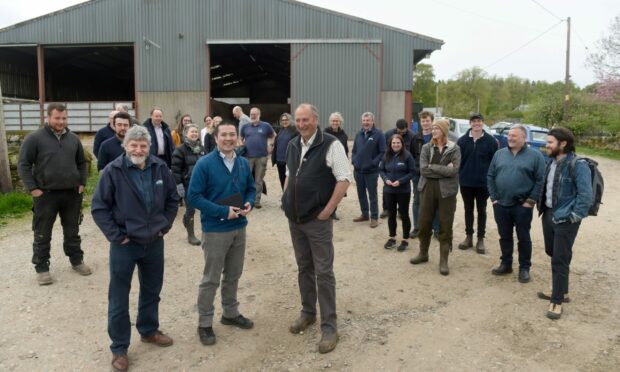A recent discussion between farmers, crofters and industry leaders on a tenanted farm near Grantown-on-Spey highlighted once again the lack of clarity surrounding the Scottish government’s aims of becoming net zero.
The Just Transition Commission – which was set up in 2022 to provide advice and scrutiny to the Scottish Government on the development and production of its just transition plans – recently met with locals at Castle Grant Home Farm.
The overall objective of the meeting was to develop the Commission’s understanding of the way major changes are or aren’t being communicated to land managers, communities and impacted groups.
Host farmer Robert Macdonald, who has been a tenant on the upland unit since 1997 said that it was ”completely impossible” for the agricultural industry not to be negatively impacted by the transition to net zero.
“The Scottish Government has committed to reaching net zero emissions by 2045, including a reduction of 75% by 2030 and so we are being told to reduce our livestock numbers,” said Macdonald.
“But what our government seems to be forgetting is that we are producing food with our livestock therefore less livestock, less food. I don’t suppose the population will be reducing their food consumption by 75%.
“This means beef will have to be shipped from South America and lamb will have to come from New Zealand and Australia. How is that helping the carbon footprint?”
Mr Macdonald also said that the industry can’t work on the Scottish government’s timescale and said farmers and crofters need clarity and answers now.
“If I have a heifer calf born today, it’s four years before it brings me any profit so how can the government expect us to make plans going forward?” he said.
“Our agricultural policy is now being made in this country so we don’t have the likes of the French to help cover for us. The biggest issue is the fact we don’t have a farmer friendly government anymore, they are being taken over by the Greens.”
Another major talking point at the meeting was the sale of carbon credits and how tenant farmers and crofters will be most at risk due to having less opportunities to borrow money and diversifying.
